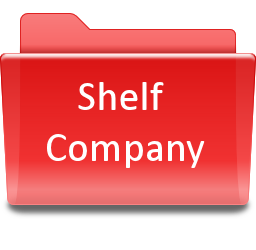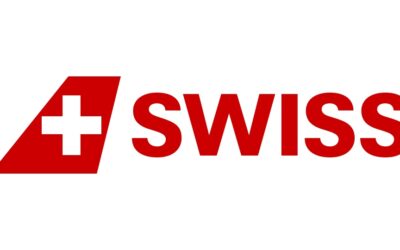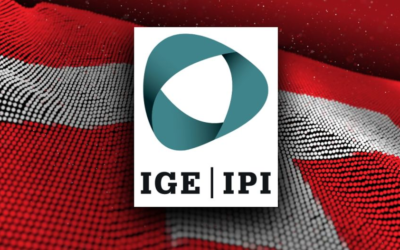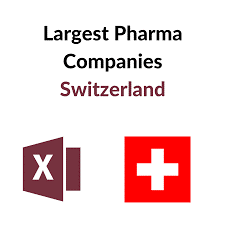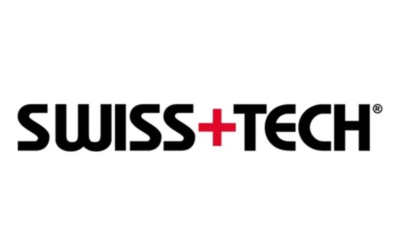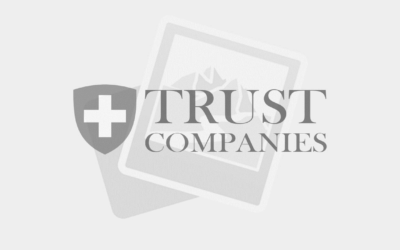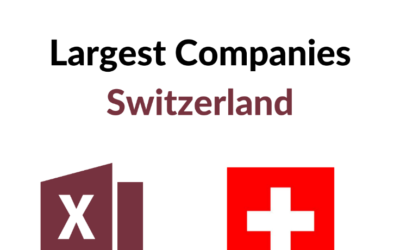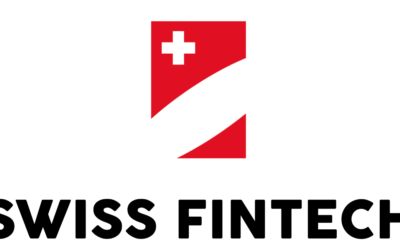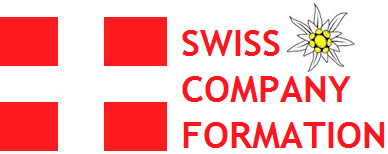Would you talk with someone in our company regarding any issues? Just drop us a line!
Table of Contents
- 1 Understanding the Swiss AG Company Structure and Its Advantages
- 2 Swiss AG and Other Company Registration Forms in Switzerland
- 3 Who Should Choose a Swiss AG Structure?
- 4 Establishing vs. Acquiring a Swiss AG
- 5 Taxation Considerations for Swiss AG Shareholders
- 6 Why the Swiss AG is Particularly Attractive for UK Investors
- 7 Compliance Requirements for Maintaining a Swiss AG
- 8 Conclusion: The Strategic Value of the Swiss AG Structure
- 10 FAQs

Switzerland company registration has earned global recognition for hosting one of the world’s most sophisticated foreign exchange markets and financial systems. The exceptional development of the Swiss financial sector continues to attract foreign companies seeking to establish operational branches within this stable jurisdiction. One of the primary advantages of incorporation in Switzerland is the country’s commitment to strict banking and commercial confidentiality, making a Swiss Aktiengesellschaft (AG) a particularly attractive choice for businesses seeking both prestige and protection. According to the Swiss State Secretariat for Economic Affairs, Switzerland ranks consistently among the top countries for ease of doing business, making it an ideal location for establishing a corporate presence.
The Swiss Confederation has established an extensive network of double taxation treaties with numerous countries worldwide. While Switzerland does not operate as a traditional offshore jurisdiction, enterprises can benefit from favorable corporate taxation Switzerland conditions by meeting specific obligations outlined in Swiss business law. This balance of transparency and tax efficiency makes the Swiss corporate structure appealing to international investors and business owners. For a comprehensive understanding of the tax implications, our guide on swiss taxes provides detailed insights into federal and cantonal tax systems that affect AG companies.
According to the Swiss Federal Statistical Office, the number of newly registered companies in Switzerland has shown consistent growth over the past decade, with the Swiss joint stock company remaining one of the most popular Swiss business entities for medium to large enterprises.
Swiss AG and Other Company Registration Forms in Switzerland
The formation and organization of business activities in Switzerland are governed by specific conditions and requirements established in Swiss corporate law. Foreign investment in Switzerland opportunities are abundant, as foreign citizens interested in establishing a business presence can register several types of Swiss business structure options, each with distinct characteristics and requirements.
Swiss Aktiengesellschaft (AG) – The Premier Joint Stock Company
The Swiss AG (Aktiengesellschaft) represents the standard incorporated company format in Switzerland, comparable to a Public Limited Company (PLC) in the UK or a Corporation in the US. This Swiss corporate structure is highly regarded internationally and offers considerable flexibility for business operations.
Key features of a Swiss AG company formation include:
| Requirement | Details | Notes |
| Minimum Share capital requirements | CHF 100,000 | At least 50,000 CHF must be paid upon registration |
| Shareholders | Minimum 1 | Can be individual, legal entity, or offshore company |
| Board of directors Switzerland | Minimum 1 member | Majority must be Swiss residents |
| Liability | Limited to share capital | Shareholders’ personal assets protected |
| Shares | Registered or bearer | Bearer shares subject to additional disclosure requirements |
| Confidentiality | High level | Business owners can operate with significant anonymity |
| Swiss corporate governance | Required annually | Subject to auditing requirements |
| Company Name | Must include “AG” | Indicates corporation status |
The Swiss AG structure stands as the most widely adopted form of business organization in the country, particularly well-suited for medium and large enterprises seeking a prestigious corporate identity. Information about corporate registrations is available through the Swiss commercial register.
One of the most significant Swiss AG benefits is the high level of privacy and security it offers. Business owners can maintain operational anonymity due to Switzerland’s robust data protection framework, though this must be balanced with international transparency standards that Switzerland has committed to uphold. For alternative corporate structures, explore the benefits of a Swiss corporation for your business needs.
While the board of directors Switzerland must include a majority of Swiss residents, this requirement can be satisfied through professional director services offered by many Swiss corporate service providers. This arrangement allows foreign entrepreneurs to maintain effective control while satisfying local residency Swiss AG requirements. For entrepreneurs seeking alternatives to the AG structure, the swiss gmbh (limited liability company) option provides a more accessible entry point with lower capital requirements.
Swiss GmbH (Limited Liability Company)
For smaller businesses or those with lower capital requirements, the Swiss GmbH (Gesellschaft mit beschränkter Haftung) presents an alternative to the Swiss AG. This structure is comparable to a Limited Liability Company (LLC) in other jurisdictions.
| Requirement | Details | Comparison to AG |
| Minimum Capital | CHF 20,000 | Lower than AG (CHF 100,000) |
| Founders | Minimum 2 | Similar to AG requirements |
| Management | Director must be Swiss resident | Similar to AG requirements |
| Liability | Limited to company assets | Same protection as AG |
| Disclosure | More transparency required | Less privacy than AG |
| Governance | Annual audit and shareholders’ meeting | Similar to AG requirements |
| Swiss AG taxation | Subject to federal and cantonal taxes | Similar to AG treatment |
While the GmbH structure requires significantly less capital than a Swiss Aktiengesellschaft, it typically offers less prestige in international business circles and may have more limited options for raising additional capital through share issuances.
Who Should Choose a Swiss AG Structure?
Not every business will benefit optimally from the Swiss AG corporate structure. This formation is best suited for established companies and entrepreneurs looking for significant financial security, business privacy, and robust legal protections within a respected jurisdiction.
The Swiss AG company formation is particularly advantageous for:
- International trading companies engaged in cross-border transactions
- Investment holding companies managing substantial assets
- Manufacturing businesses seeking a prestigious European base
- Financial service providers leveraging Switzerland’s banking expertise
- Intellectual property holding companies benefiting from strong Swiss IP protections
According to the World Economic Forum, Switzerland consistently ranks among the top countries for business competitiveness, making it an attractive jurisdiction for setting up AG in Switzerland.
In contrast, simpler business structures like sole proprietorships tend to dominate in professional service fields such as:
- Independent accountants and bookkeepers
- Legal practitioners and consultants
- Tax advisors and financial planners
- Small-scale retail operations
- Local service providers
Establishing vs. Acquiring a Swiss AG
Registration Process for a New Swiss AG
Switzerland company registration involves several key steps:
- Verification of company name availability
- Preparation of articles of association
- Deposit of minimum share capital requirements in a swiss bank account
- Notarization of formation documents
- Registration with the Swiss commercial register
- Tax registration and social security enrollment
This process typically takes 2-4 weeks and requires assistance from legal professionals familiar with Swiss corporate law. The Federal Commercial Registry Office provides official verification for company name availability and registration details.
Buying a Ready-Made Swiss AG
In certain situations, purchasing a ready-made (shelf) Swiss AG can provide an alternative to registering a new company. This approach offers several potential advantages:
- Immediate availability for business operations
- Established banking relationships potentially in place
- Possible existing commercial history
- Faster time to market for business activities
However, this process must include comprehensive legal due diligence to ensure compliance with Swiss business law and to verify the company’s history. Purchasers should investigate:
- Previous business activities
- Existing contractual obligations
- Potential liabilities or legal disputes
- Tax compliance history
- Banking relationship status
For those interested in this expedited approach, our guide on shelf company in Switzerland explores the advantages and considerations when purchasing a pre-registered entity.
While AG offers certain advantages, many smaller businesses prefer the flexibility of a Swiss GmbH company.

Taxation Considerations for Swiss AG Shareholders
Dividend Distribution and Withholding Tax
Dividends paid by a Swiss AG to local and foreign shareholders are subject to Swiss AG taxation. To prevent tax evasion and ensure compliance, Switzerland imposes an “offset tax” (withholding tax) of 35% on dividend distributions. This tax is automatically withheld by the company and transferred to the Federal Tax Administration.
Shareholder Type | Withholding Tax Rate | Potential Refund |
| Swiss Residence | 35% | Full offset against income tax |
| EU Corporate Shareholders | 35% | Potential reduction to 0-15% |
| Other Treaty Countries | 35% | Typically reduced to 15-20% |
| Non-Treaty Countries | 35% | Limited or no refund available |
Both local residents and foreign shareholders may qualify for partial or complete tax refunds based on existing double taxation treaties between Switzerland and their country of residence. For foreign investors, initiating a refund process is often financially beneficial and should be pursued with professional tax assistance. The Swiss Federal Tax Administration provides detailed guidance on withholding tax refund procedures for international investors.
Corporate Tax Benefits of a Swiss AG
The Swiss AG company structure benefits from Switzerland’s competitive corporate taxation Switzerland system, which includes:
- Federal corporate income tax rate of approximately 8.5%
- Cantonal and municipal taxes varying by location (combined rates typically between 12-24%)
- Participation exemption for qualifying dividend income and capital gains
- Extensive double taxation treaties network reducing international double taxation
- Tax incentives for innovative companies and specific industries
Companies considering setting up AG in Switzerland should consult with tax professionals to determine the optimal canton for registration based on their specific business activities and tax profile. Many businesses find the canton of company formation Zug particularly attractive due to its competitive tax rates and business-friendly environment.
Why the Swiss AG is Particularly Attractive for UK Investors
For UK business owners and investors, establishing a Swiss Aktiengesellschaft provides numerous strategic advantages:
- Access to Switzerland’s favorable tax conditions while benefiting from the UK-Switzerland double taxation treaty
- Exceptional financial stability through Switzerland’s world-renowned banking sector
- Strong asset protection and business confidentiality under Swiss corporate law
- Strategic access to European markets while maintaining operations outside the EU regulatory framework
- Prestigious business address enhancing corporate reputation and credibility
- Potential currency diversification advantages between GBP, CHF, and EUR
If you are a UK resident considering Swiss company formation, the Swiss AG structure may represent an optimal solution for long-term business growth, investment security, and international expansion. For those planning to relocate or establish physical presence, understanding the swiss residence permit requirements is essential for successful Swiss business immigration.

Compliance Requirements for Maintaining a Swiss AG
Operating a Swiss AG comes with ongoing compliance obligations that must be fulfilled to maintain good standing:
- Annual financial statements prepared according to Swiss accounting standards
- Regular board of directors Switzerland meetings with proper documentation
- Annual general shareholders’ meeting
- Statutory audits (with exceptions for small companies meeting specific criteria)
- Timely tax filings at federal and cantonal levels
- Maintenance of corporate records and shareholder register
- Compliance with anti-money laundering regulations where applicable
- For certain regulated activities, obtaining appropriate licenses such as a SECO license Switzerland
These Swiss AG requirements ensure that the company maintains its legal status and continues to benefit from the advantages that Switzerland offers to properly managed corporate entities.
Conclusion: The Strategic Value of the Swiss AG Structure
The Swiss Aktiengesellschaft represents one of the most prestigious and versatile corporate structures available to international businesses. By combining strong asset protection, significant privacy Swiss AG benefits, and access to Switzerland’s exceptional financial infrastructure, this corporate form provides compelling advantages for medium to large enterprises seeking a stable European business presence.
Whether your company focuses on international trade, investment activities, intellectual property management, or manufacturing, the Swiss AG structure offers a solid foundation for sustainable business growth in one of the world’s most respected jurisdictions.
For businesses considering expansion into European markets or looking to diversify their Swiss corporate structure for risk management purposes, the Swiss AG merits serious consideration as part of a comprehensive international business strategy. Entrepreneurs should also explore alternative legal structures such as the swiss company options including foundations and the swiss verein to determine the optimal vehicle for their specific business objectives.
Would you talk with someone in our company regarding any issues? Just drop us a line!
FAQs
A Swiss AG (Aktiengesellschaft) is a joint-stock company and one of the most common business forms in Switzerland, especially for medium and large enterprises. It requires a minimum authorized capital of 100,000 Swiss francs, with at least 50,000 CHF paid at registration. Swiss AGs benefit from favorable tax conditions, strong banking secrecy, and the ability to issue both registered and bearer shares.
Switzerland offers several types of company registration forms for foreign citizens, including Joint Stock Company (AG), Limited Company (GmbH), and sole proprietorships. The AG is suitable for large businesses, while the GmbH is popular among medium and small businesses. Sole proprietorships are common among professionals like accountants, lawyers, and tax consultants. Each form has specific requirements for capital, residency, and operational procedures.
The AG form is ideal for large businesses due to its structure and benefits. It provides financial asset protection, confidentiality, and the ability to raise capital through share issuance. It is less common for sole proprietorships, which are more suitable for independent professionals such as accountants, lawyers, and tax consultants. The AG form is also preferred by foreign businesses looking to establish a presence in Switzerland.
GmbH stands for Gesellschaft mit beschränkter Haftung, which is a limited liability company in Switzerland. It is a popular business form among small and medium-sized enterprises (SMEs). The GmbH requires a minimum authorized capital of 20,000 Swiss francs and at least two founders. It offers flexibility in ownership and management, with mandatory annual audits and shareholder meetings.
Purchasing a ready-made AG company can be an alternative to registering a new one. The process involves legal preparation, due diligence, and compliance with Swiss regulations. This approach can save time and provide immediate access to business operations. However, it requires careful evaluation to ensure the company’s legal and financial standing meets your requirements.
Dividends paid by a Swiss AG to local and foreign shareholders are subject to income tax. Swiss legislation requires a withholding tax of 35% on dividends, which the company must remit to the Federal Tax Administration. However, this rate can often be reduced, and both local and foreign shareholders may be eligible for a partial refund of the withheld tax, depending on bilateral agreements and compliance with legal conditions.
Forming a Swiss AG requires a minimum authorized capital of 100,000 Swiss francs, with at least 50,000 CHF paid at the time of registration. The company must have a board of directors, the majority of whom must be Swiss residents. Annual financial statements and audits are mandatory. The AG can issue both registered and bearer shares, providing flexibility in ownership and investment.
Registering a business in Switzerland offers several advantages, including financial stability, favorable tax conditions, strong legal protection, and advanced infrastructure. Switzerland’s banking and commercial secrecy laws, along with agreements to avoid double taxation, make it an attractive destination for foreign businesses. The country’s robust legal framework ensures confidentiality and security for business operations.
A Swiss Verein is a legal structure commonly used by international associations and professional services firms. It allows for the formation of a collective entity while maintaining the independence of individual member entities. This structure differs from other business forms like AG and GmbH, as it provides a flexible framework for collaboration without central control, making it suitable for global networks and organizations.
Swiss companies, including AG and GmbH, are required to conduct annual audits and prepare consolidated financial statements. The audit must be carried out by an independent auditor to ensure compliance with Swiss accounting standards and regulations. This process ensures transparency and accountability in business operations, providing confidence to shareholders and stakeholders in the company’s financial health.




